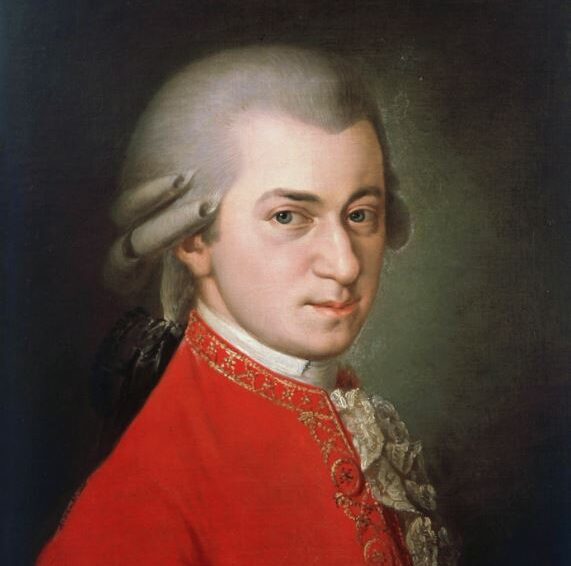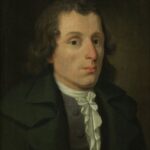We continue our series on musical influencers in Beethoven’s life. Next in line is no less than Mozart himself! From his childhood everybody wanted him to be a Mozart! How did this expectation influence his life?
There is a very popular anecdote about the young Beethoven visiting Vienna for the first time, and being introduced to the supreme Master, even arranging some lessons from him. According to the story Mozart gives Beethoven a chance to play on the piano to introduce himself. Beethoven charms him and Mozart says: “Mark that young man; he will make himself a name in the world!”.
After the meeting Beethoven aired his slight disappointment over Mozart’s piano play saying, “he had a fine but choppy way of playing, no ligato.”
As we established in our article a while back there is a very high probability that this story is not true and most likely they never met under such circumstances. It is true, however, that Beethoven admired Mozart, who had had great influence on him especially in the first part of his career.
Beethoven started his profession in a musical universe that had been dominated by the Viennese classical style led by Haydn and Mozart. Bonn was not Vienna, but still he was able to absorb all the important musical, philosophical and political ideas of the age. He knew the compositions of Mozart well and as a member of the orchestra he even played some of them at the Court of Bonn.
Beethoven’s first important meeting with Mozart was not in person, but with an idea or expectation. When his father Johann had realized that Ludwig had remarkable talent he decided – mostly because of financial reasons – to turn him into another “Mozart”, who already composed at the age of five and had a European concert tour a year later. The young Beethoven failed to live up to these expectations. Although talented, as a child he was far from the “Wunderkind von Salzburg”.
|Related: Was Beethoven a child prodigy, a Wunderkind?
Nevertheless it had strong impact on him trying to live up to a man, who was already a genius even as a child.
His father was not the only one who cherished this magical connection or parallel with Mozart. As Beethoven grew older, friends, newspapers and patrons in Bonn openly treated him as a Mozartian talent who one day would take his place. For young Ludwig, the measurement of talent and success became a Mozart!
When Beethoven returned to Vienna as an adult in 1792 (at that time Mozart had already passed away), he was sent on a mission: to learn from Haydn and return to Bonn as a polished musician. As his patron, Waldstein, wrote him at farewell he would go to Vienna to “receive Mozart’s spirit from Haydn’s hands”. Again, it is visible how Mozart followed him as a shadow!
|Related: Haydn and Beethoven
Beethoven was a conscientious student analyzing music of famous composers; a habit he kept up even after he himself became mature and famous. He studied and copied for himself music from Händel, Bach, and naturally Mozart. Through these he learned ideas and techniques in composition. Most of the variations he wrote on other composer’s works was on Mozart’s music. This diligent analyzation and practice show how hard he really wanted to receive Mozart’s spirit!
In Beethoven’s early works up till 1802 this intention and connection is evident. No wonder! He started his career as the aspiring Mozart shadow who was the pupil of Haydn. Tell him about pressure in your professional life…!
It was not about copying successful composers or not having original ideas. In the beginning he was an outsider in Vienna, a “wannabe” who had arrived in a complete and well rooted musical establishment. He had to adopt.
Many argue that his deafness was both a tragedy and a blessing at the same time. This illness had pushed him to pursue his own style, his new path that officially started with the Heiligenstadt Testament (a letter in which he openly admits his menacing deafness and desperation) and the Third Symphony.
Once he had left behind all the father figures, his own biological, Neefe, Haydn, Salieri, Albrechtsberger and finally Mozart, he developed not only his own unique style, but his own age: the romantic musical era!








